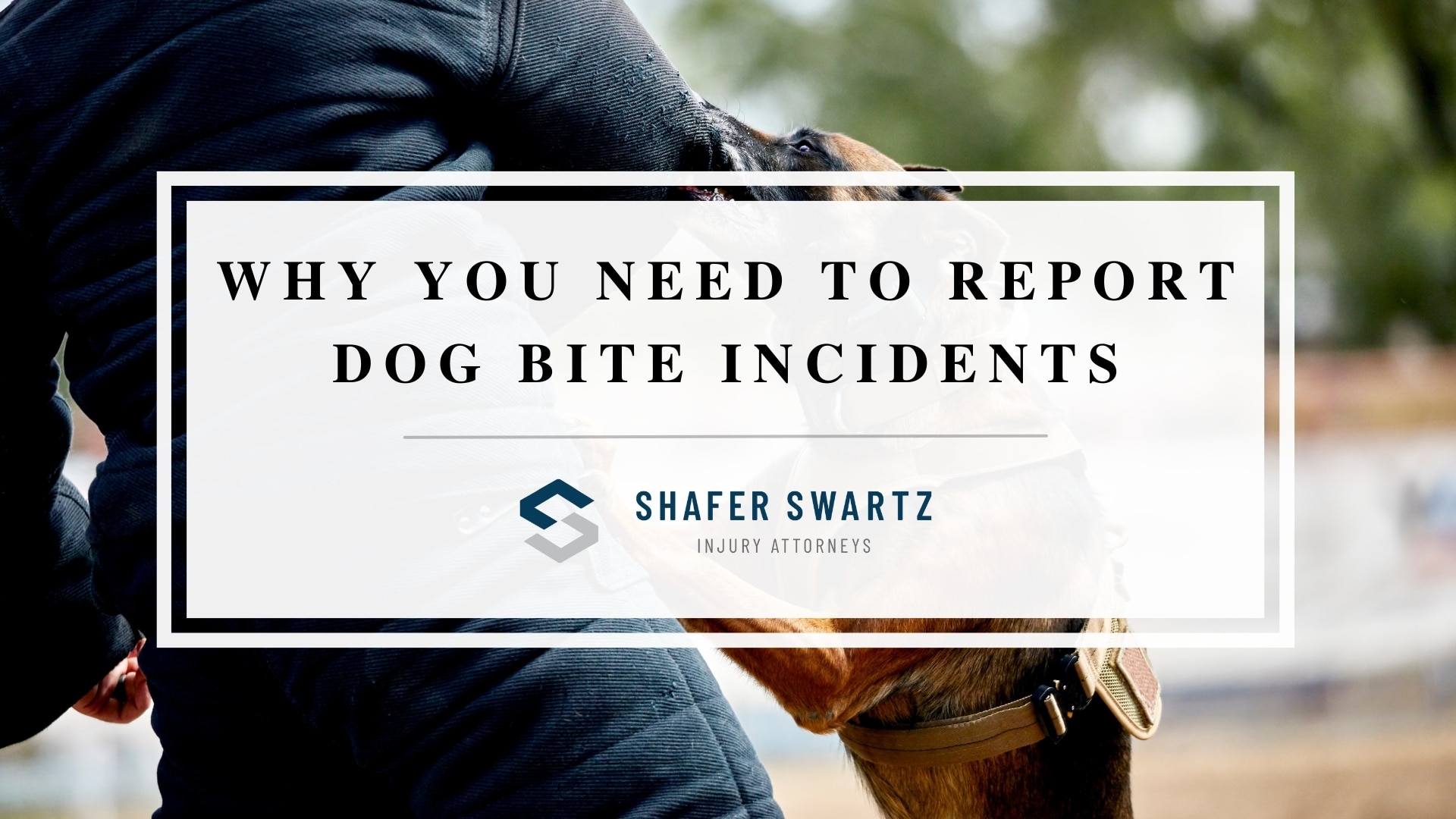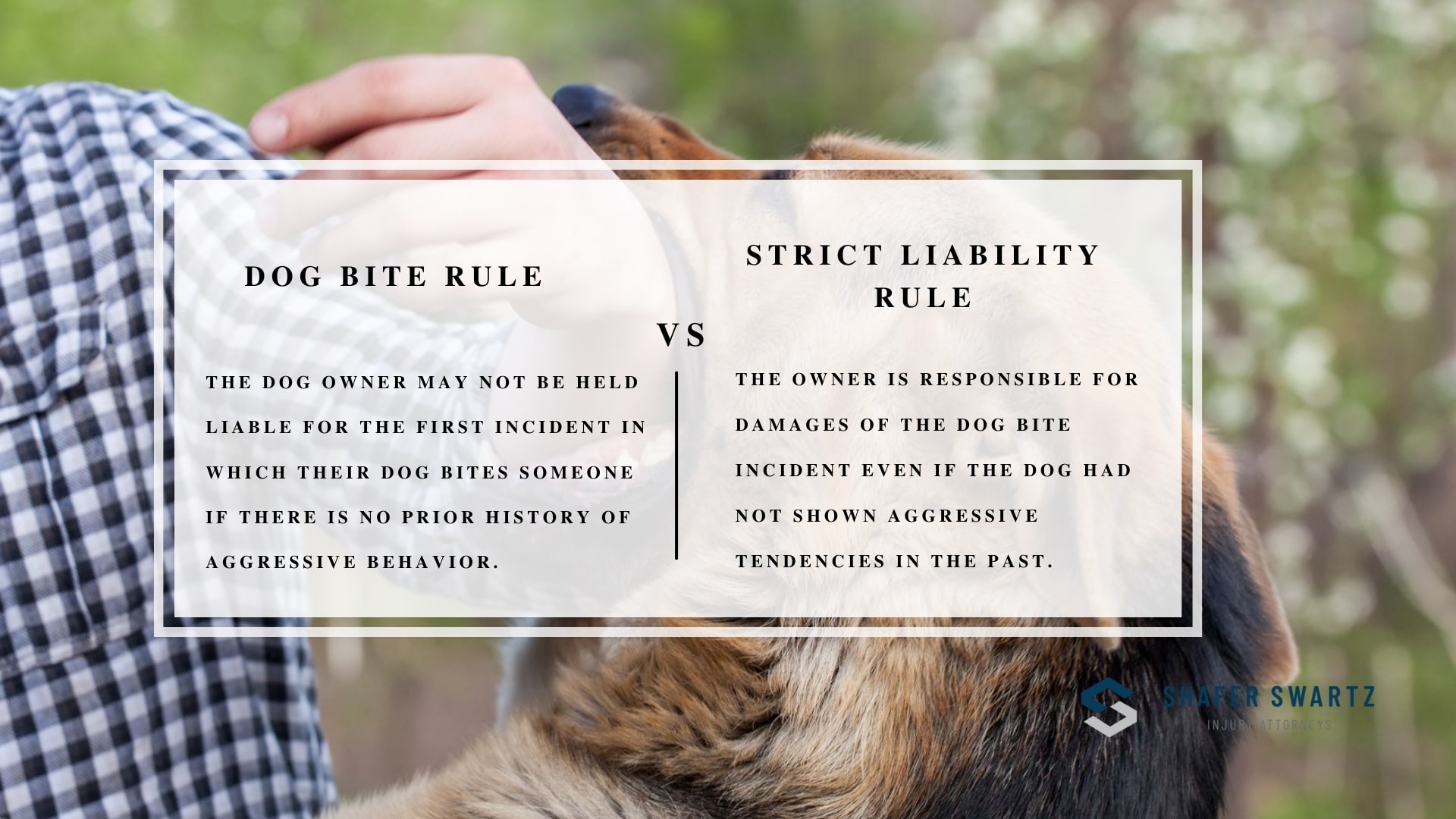
Reporting dog bite incidents ensures the safety and well-being of both the individuals involved and the broader community. When these incidents are reported, appropriate measures can be taken to address health risks, enforce responsible pet ownership, and prevent future occurrences.
However, despite its evident importance, some individuals opt not to report dog bite incidents, unaware of the potential consequences such action may cause. In this article, our expert Muskegon injury attorney will discuss what happens if you don’t report a dog bite in Michigan, as well as what to do legally if a dog bites you.
Legal Obligations and Reporting Laws
Each state has its own legal framework to address issues related to dog bites. Some states follow the “one-bite rule,” which allows dog owners to escape liability for the first incident in which their dog bites someone, provided that there is no prior history of aggressive behavior. Subsequent to the first bite, the owner can be held accountable for any injuries caused by the dog.
However, Michigan does not follow the “one-bite rule.” Instead, the state adheres to the strict liability rule. Under this rule, dog owners are held strictly liable for damages resulting from a dog bite, irrespective of whether the dog exhibited aggressive tendencies previously or if the owner was aware of any aggressive behavior. If you’re a dog bite victim, it’s best to seek legal guidance from a knowledgeable Muskegon injury attorney on how to claim compensation from the owner.
What to Do Legally if a Dog Bites You
In Michigan, while there may not be a specific legal requirement for dog owners to report a dog bite incident, it is essential for the victim or someone acting on their behalf to report the incident to the appropriate authorities. Reporting the incident can be important for public safety reasons, as it allows authorities to assess the situation and take appropriate actions, such as quarantining the dog or ensuring that it does not pose a further threat.
But if you are a victim of a dog or any dangerous animal bite, and there’s a risk of rabies, it becomes mandatory to report the incident to the public health agency in both your place of residence and where the bite occurred within 24 hours. If you have received medical attention after the incident, the healthcare provider will complete the animal bite form and submit the report on your behalf. However, if you did not seek medical attention, you are responsible for completing the form and reporting the incident to your local health department.
States and Their Respective Dog Bite Laws
Individuals who are victims of dog or animal bites, particularly if there’s any concern about rabies, should be aware of and adhere to the reporting requirements in their jurisdiction. If you’re curious about which states require doctors to report dog bites, here’s a list of states along with their respective dog bite laws:
| State | Dog Bite Law |
| Alabama | Alabama Code Section 3-6-1 |
| Arizona | Arizona Revised Statutes Section 11-1025 |
| California | California Civil Code Section 3342 |
| Colorado | Colorado Code Section 13-21-124 |
| Connecticut | Connecticut General Statutes Section 22-357 |
| Delaware | 16 Delaware Code Section 3053F |
| Florida | Florida Statutes Section 767.04 |
| Georgia | Georgia Code Section 51-2-7 |
| Hawaii | Hawaii Revised Statutes Section 663-9 |
| Idaho | Idaho Code Section 25-2810 |
| Illinois | 510 Illinois Compiled Statutes Section 5/16 |
| Indiana | Indiana Code Section 15-20-1-3 |
| Iowa | Iowa Code Section 351.28 |
| Kentucky | Kentucky Revised Statutes Section 258.235 |
| Louisiana | Louisiana Civil Code Article 2321 |
| Maine | Maine Revised Statutes Section 3961 |
| Maryland | Maryland Courts and Judicial Proceedings Code Section 3-1901 |
| Massachusetts | Massachusetts General Laws Chapter 140, Section 155 |
| Michigan | Michigan Compiled Laws Section 287.351 |
| Minnesota | Minnesota Statutes Section 347.22 |
| Missouri | Missouri Revised Statutes Section 273.036 |
| Montana | Montana Code Section 27-1-715 |
| Nebraska | Nebraska Revised Statutes Section 54-601 |
| New Hampshire | New Hampshire Revised Statutes Section 466:19 |
| New Jersey | New Jersey Revised Statutes Section 4:19-16 |
| New York | New York Agriculture & Markets Law Section 123 |
| North Carolina | North Carolina General Statutes Section 67-4.4 |
| Ohio | Ohio Revised Code Section 955.28 |
| Oklahoma | Oklahoma Statutes Section 4-42.1 |
| Oregon | Oregon Revised Statutes Section 31.360 |
| Pennsylvania | 3 Pennsylvania Statutes Section 459-502 |
| Rhode Island | Rhode Island General Laws Section 4-13-16 |
| South Carolina | South Carolina Code of Laws Section 47-3-110 |
| Tennessee | Tennessee Code Section 44-8-413 |
| Utah | Utah Code Section 18-1-1 |
| Washington | Revised Code of Washington Section 16.08.040 |
| Washington, D.C. | District of Columbia Code Section 8-1808 |
| West Virginia | West Virginia Code Section 19-20-13 |
| Wisconsin | Wisconsin Statutes Section 174.02 |
Medical Consequences
Failure to report a dog bite incident and seek immediate medical care can have significant medical consequences for the victim. Even seemingly minor bites can lead to infections, and without proper treatment, infections can develop in the wound, potentially leading to complications such as cellulitis or even rabies, which is universally fatal. In addition, untreated injuries can cause scarring, nerve damage, or functional impairment, impacting the victim’s quality of life. In some cases, bites can result in psychological trauma, such as anxiety or a fear of dogs. Seeking prompt medical attention allows healthcare professionals to assess the extent of the injury, clean the wound thoroughly, and administer appropriate treatments such as antibiotics or tetanus shots.
When pursuing compensation for dog bite-related injuries, not reporting the incident can affect the strength of your case. Reporting the incident creates an official record, which is valuable when making a compensation claim. Insurance companies and legal authorities often rely on documented reports to assess the validity of dog bite claims. Failing to report the incident might be used against you, potentially complicating the process. Having a competent Muskegon injury attorney ensures you receive fair compensation not only for economic damages but also for non-economic damages like pain and suffering.
Seeking Legal Assistance
Dealing with the aftermath of a dog bite incident can be overwhelming, both emotionally and legally. If you or a loved one has been a victim of a dog bite, Shafer Swartz PLC is here to provide you with the legal expertise and assistance you need in this challenging situation.
We’ll work closely with you to understand your case, gather the necessary information, and navigate the legal process on your behalf as you seek to pursue the compensation you rightfully deserve. Our Muskegon injury attorneys are well-versed in Michigan dog bite laws, ensuring your rights are upheld. Contact us at (231) 722-2444 or here for a consultation, and let us help you move forward.

